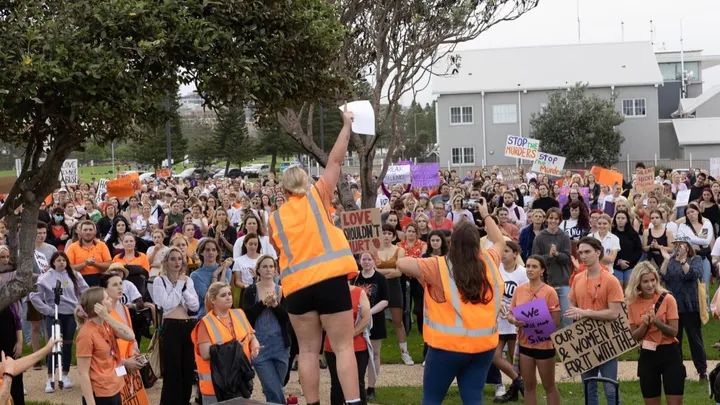
Government turns blind eye to immigrant workers

BY ALEX EUGENE
It’s just over two weeks since the Turnbull government announced it is axing the 457 skilled working visa scheme, claiming the move was to “put Australian jobs first”.
But closer scrutiny of the changes have exposed the government’s dishonesty.
In 2014 the coalition spent taxpayer money on conducting a lengthy independent enquiry into the system. Now three years on, it is apparent that they have ignored its most important recommendations.
This is despite having mentioned the enquiry several times in public statements, seemingly in an attempt to make it look as though they had heeded the report’s advice.
The inquiry was chaired by John Azarias, who directed the government’s attention towards three key issues in a report responding to the inquiry. Sadly, they have blatantly looked the other way on all three counts.
First, the fact that migrant workers were being abused and underpaid. Azarias said we need minimum salary requirements to stop this from happening. Why would you pay a local $25 an hour when you can pay a foreigner $11 an hour, and on top of that, blackmail them into agreeing by dangling their chance of residency at arms length? This is a very real situation that was faced by hundreds of 7-Eleven employees as recently as 2015.
Stephanie Bal, who was offered a 457 visa in marketing, says she and her partner were expected to pay sums of up to $50,000 out of their salaries so that their employer could satisfy government regulations on paper.
“There were a lot of hidden costs. [The company] had not put in enough money for training. Each year two people off the payroll must be trained for every person sponsored on a 457 visa…the sponsored people are expected to meet this cost,” she said.
After Mr Azarias highlighted the problem in his report, it was again brought to the government’s attention by Richard Marles, the Shadow Minister for Immigration and Border Protection, who referred to the “systemic underpayment” of migrants in a Parliamentary speech.
The Migration Council of Australia also weighed in when they released a response to the inquiry, highlighting its concern that there were regular “instances of abuse” of 457 visa holders that needed to be addressed.
Despite all of this, Prime Minister Turnbull has made no mention of anything that would remedy the situation. Employers are still free to underpay and abuse foreign workers without fear of investigation. Then we wonder – why are they not keen to employ Australians who know their rights?
The second Azarius recommendation was that there be an independent body deciding which jobs have genuine skill shortages, instead of the list that comes from employers who are clearly biased towards their own needs. It has been widely shown that the current system is flawed.
The UK has a successful Migration Advisory Committee who provide the government with recommendations informed by a team of economists, and independent, evidence based research. Australian industry standards are often based on British standards; all attests to the fact that we should at least trial our own version of the UK’s independent body. But the Turnbull government has no plans to reform the grossly inadequate system.
Thirdly, Azarias recommended that the scheme should contribute significantly more money towards vocational training for Australians. Again, the government has not listened to that advice, preferring to allow foreigners on student visas to simultaneously fill university places and job roles where they can be employed illegally and at the mercy of dodgy employer demands.
“A key part of this debate has to be the education and training we provide to young Australians looking for work,” said the Labour member and former Mayor of Marrickville, Jo Haylen.
“Coalition governments in Canberra and Macquarie Street have slashed funding for TAFE and we continue to lose apprentices at an alarming rate,” she said.
So what exactly is it that will result from the minimal changes the government has made to their visa system?
In summary, lining their pockets with more cash by hiking visa costs; insulting foreign workers by reducing their incentive to come here through a more burdensome pathway to citizenship; and showing its racist tendencies by pandering to the shallow, childish demands of the One Nation cohort.
“We want to see changes that are to the benefit of all workers, not a rebranding of the current visa scheme with added nationalism, xenophobia and unfair obstacles for migrant workers,” said Greens Senator for NSW, Lee Rhiannon.
“The Turnbull government is shamelessly parroting the language of Trump and One Nation, using temporary overseas workers as a scapegoat for broader unemployment.
“It would be a big mistake to think Turnbull is standing up for workers of any kind – this government is out to cut penalty rates, weaken unions and allow companies to maximise their profits at the expense of their employees,” she said.
Less than 10% of all workers in Australia were employed on 457 visas, which belies Pauline Hanson and Malcolm Turnbull’s claims that they were stealing jobs from locals. On the contrary, many roles have been filled by overseas workers in jobs that Australians simply will not apply for.
“I work in a hotel, and trust me it’s very hard to find Australian staff,” said Virginia Biasini, a restaurant manager in Sydney.
“They don’t want to work on the weekend, they don’t want to work on Sunday, they want to work from Monday to Friday and most of the time during the day…it’s hard,” she said.
Ms Biasini said she was shocked at the sudden changes to the visa rules, and probably wouldn’t have come to Australia from Italy if she hadn’t been able to apply for permanent residency.
“The government didn’t think about the time we spent here and what we gave as well. [Now] after five years they can say thanks a lot, but you need to go back home,” she said.
Alessandro Serani, a construction sales manager on a 457 visa, also felt betrayed by the ruthless changes implemented. He will now have to wait five years before he can visit his family in Italy and come back to his job in Australia, if he wishes to apply for citizenship.
“You are messing up people’s life. I think this has been Turnbull just looking for votes. The motivation [for changing the system] should be long term,” he said.
For a government who has continuously professed its plight to protect the “integrity” of Australian jobs, there is sadly little honor in its new visa system.









